Even today many creditors will argue that they are not responsible for the acts of the collateral recovery specialists they hire to recover their defaulted collateral. Their argument, which the courts disagree with, is that the collateral recovery specialist is an “independent contractor” and therefore must assume the liability associated with the self-help repossession process.
Historically, the courts have ruled that where “inherent risk” is found in any occupation, the principal cannot “delegate” away their “vicarious” liability. Further, the courts all across the country have ruled time after time that the act of self-help repossession is a process involving “inherent risks” and, therefore the creditor is liable for the acts of the recovery specialists they hire.
This decision by the courts is not new and it is interesting that many creditors still maintain that they have no liability in this process. For this article I have researched numerous court decisions in several states that have well established the liability of creditors who assign out self-help repossession assignments to collateral recovery specialists.
The following cases, all Appellate or State Supreme Decisions establishes case law and leaves no question as to the liability of the creditor.
McCall v. Owens
Court of Appeals of Tennessee, Eastern Section
May 9, 1991
Court’s Holding: States, in part, “the bank was still vicariously liable for the wrongful acts of the repossessor even though the repossessor was an independent contractor. The duty to not breach the peace is non-delegable”.
Hester v. Bandy
Supreme Court of Mississippi
December 2, 1993
Court’s Holding: States, in part, “when the work to be performed itself entails the anticipation of probable serious danger to person or property, the creditor may be held liable for the acts of an independent contractor. Thus in this case the creditor can be held liable for the actions of the repossessor”.
Nixon v. Halpin
District Court of Appeal of Florida, Fourth District
June 23, 1993
Court’s Holding: States, in part, “A creditor has the right to repossess collateral only if the repossession can be accomplished without a breach of the peace. Once there is a breach of the peace, any repossession must stop. If it does not stop, the creditor will be held responsible for whatever actions take place. The duty to avoid a breach of the peace cannot be delegated. Therefore, the creditor could not delegate its duty of peaceable repossession to an independent contractor and thereby avoid liability for injuries. The creditor faces liability when its independent contractor caused injury”.
Williamson v. Fowler Toyota
Supreme Court of Oklahoma
February 24, 1998
Court’s Holding: States, in part, “The court held that the duty to preserve the peace in non-delegable, so the creditor is liable for the torts of the repossessor even if the repossessor is an independent contractor. Fowler Toyota was liable for both the breach of the peace and the trespass. This includes punitive damages”.
Trash v. Credit Acceptance
Supreme Court of Alabama
March 25, 2002
The Alabama Supreme Court reinstated a personal injury suit against credit Acceptance Corp., whose independent repossession agent spread a slippery substance on a driveway to make it easier to tow away a car.
In a majority opinion by Justice Thomas Woodall, the Supreme Court said there is sufficient evidence that Credit Acceptance had the right to control how Gulf Coast (the repossession agency) repossessed its vehicles. For example, it noted that after the accident, Credit Acceptance instructed Gulf Coast to stop using lubricants during repossessions.
In a speech by nationally known attorney, William Mapother (now deceased) said, “the language of the code (Uniform Commercial Code) is very strong. It states, ‘courts should hold the secured party responsible for the actions of others taken on the secured party’s behalf, including independent contractors engaged by the secured party to take possession of collateral”
Denise Marquez and Donna Ortiz v. Ford Motor Credit Company
Case no. D1333-CV2002-0214
This case involved the death of debtor, John Marquez and was filed in 2002. It has since been settled. Although the record as to the amount of the settlement was sealed, estimates range from $15 million to $18 million from Ford Motor Credit. This case pointed out the imminent danger of creditors hiring collateral recovery specialists who are not sufficiently trained and certified in the field of asset and collateral recovery, especially where the recovery assignment was issued (by the creditor) on a “contingent” basis.
The “bottom line” is very clear. Creditors are liable for the acts of the collateral recovery specialists they hire. And those creditors (and insurance carriers) who read and understand court decisions regarding their liability within the self-help repossession process realize the need to require the recovery specialists they hire (or insure) to provide proof of their training and professional competency. Statistics clearly show that the professionally trained collateral recovery specialist substantially reduces the potential for liability and insurance claims. Just as importantly, in litigation a jury is more prone to be more lenient with a creditor who has based their hiring of recovery specialists on the professional certification and competency of that recovery specialist rather than price.
Be Safe,
Joe Taylor
Vice President
Director of Education
RISC









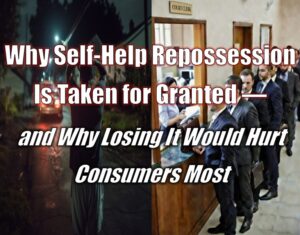


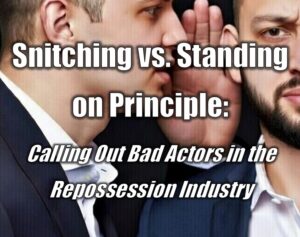
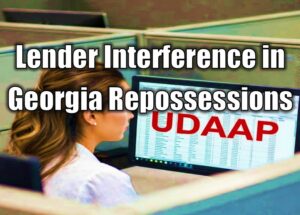

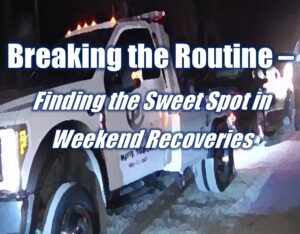
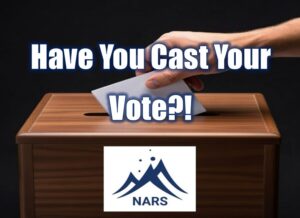

Joe forgot to mention that lenders who use forwarders are still liable for the recovery companies the forwarders hire. After over forty years in this industry, I cant believe my eyes when I see what some companies hire for recovery agents. With what the forwarders pay, I guess that is all they can afford to hire.
The forwarders are trying to legislate themselves out of liability with the same argument as UBER by claiming they are simply a database company that connects other companies.
That is partially true because other than that they really do not do anything and are not needed. Regulation and licensing in each state should force them out of business.
In Florida the law clearly says the repo company must contract directly with the lien holder or it is unlawful ……. but just try to get the state to actually enforce their laws on anybody except the repo company trying to be honest….. after 20 years I have given up on the State of Florida and have very little respect for their licensing at this point.
Uber earlier this month settled two lawsuits for $28.5M that alleged it misled customers about safety procedures and fees. Its also facing a separate lawsuit by the DA’s in San Francisco and LA who allege that Uber’s checks failed to prevent the company from hiring several felons. Then there is Kalamazoo?
Steve, I have seen and heard your comment many times. When someone knows for a fact and can demonstrate it, that a forwarding company is using a noncompliant agent then it is their responsibility to report it. On the couple of occasions where a member has brought this information to my attention we have been successful in having the non compliant agency removed from the forwarder’s list. I know of three such occasions where this has happened.
There is another thread on here now about associations but I want to say it here also, if we were united as an industry so that we had a voice that was recognized as one of cohesion and integrity we could address these issues more effectively. Clients are concerned about who is doing their work in the field regardless if they are assigning direct or indirect. When they get the word that a forwarder is using noncompliant agencies it makes a difference. If we do this correctly and together, we can start to clean up our industry.